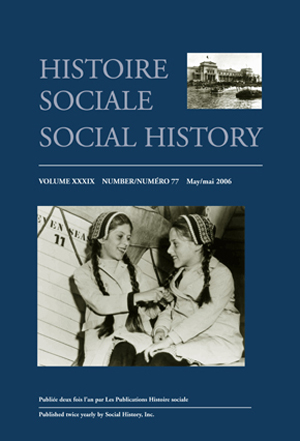"Roots" Nationalism: Branding English Canada Cool in the 1980s and 1990s
Résumé
Dans les années 1950, 1960 et 1970, les nationalistes canadiens craignaient l’influence des États-Unis sur l’économie et sur la politique étrangère du Canada et ils se sont attachés à promouvoir et à protéger la culture canadienne. Beaucoup estiment que cette phase du nationalisme s’est éteinte avec l’élection de Brian Mulroney en 1984 et avec la signature de l’Accord de libre-échange en 1988. En fait, le nationalisme canadien n’a pas rendu l’âme dans les années 1980, changeant plutôt d’habits pour laisser choir sa livrée économique et culturelle afin de loger davantage à l’enseigne de la consommation et des marques de commerce, comme en témoigne le succès phénoménal de la compagnie Roots. L’usage abondant de symboles canadiens – castors, canots et feuille d’érable – par l’entreprise a permis aux Canadiens de s’acheter de l’identité et de montrer fièrement l’image branchée de leur pays au restant de la planète. Le « nationalisme à la Roots » fut un produit de la mondialisation de l’économie, de la place grandissante des vêtements et styles de vie de gravitant autour des marques et des particularités de la crise identitaire canadienne.Téléchargements
Publié-e
2006-05-01
Numéro
Rubrique
Un pays se démarquant au fer de l'identité


